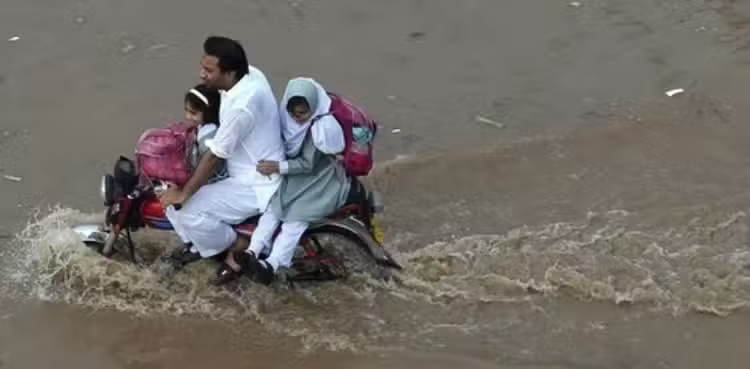Islamabad, Sep 6: The World Bank report, “Choosing Our Future: Education for Climate Action,” highlights the frequent and prolonged climate-related school closures in Pakistan, which not only disrupt learning but also lead to increased dropout rates as some students do not return when schools reopen.
An estimated 3.5 million children in Pakistan had educational disruptions during the 2022 flooding, with a million possibly not attending school at all.
Children from homes with lower incomes and educational levels were especially hard hit. Significant learning losses resulted from the fact that six months after the storm, 92% of impacted households were still unsure of when local schools will reopen.
Students in Pakistan missed 97 school days between January 2022 and June 2024, or almost 54% of a normal academic year. According to the report, every day that schools are closed is a day that students miss out on learning.
According to the survey, farmers in Pakistan who have completed at least a lower secondary education are more likely to use farm insurance, diversify their crop portfolios, and modify their planting dates in order to adapt to climate change.
Furthermore, higher levels of education among women have been connected with improved health outcomes for their offspring, as educated moms are better able to reduce the risks of air pollution and excessive temperatures.
Data from the floods of 2022 indicates that 97% of Pakistani parents are in favor of teaching students about climate change in the classroom.
A total of 98 percent of education policymakers from 33 low- and middle-income nations are in favor of including climate education into school curricula.
According to the survey, youth awareness of climate change is lowest in lower-middle-class and low-income nations including Bangladesh (37%), Pakistan (19%), and Sierra Leone (26%).









